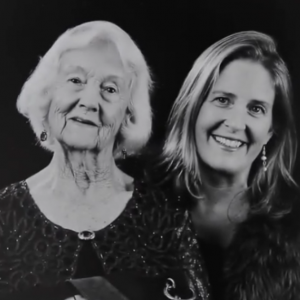July 7th, 2016 Newsletter

July 7th, 2016 Newsletter
July 7, 2016
Good morning and welcome to agebuzz… Headlining today’s topics:
-Eye-Opener: New Implants For Aging Eyes
-Paid Family Leave: New Sources Of Pay For Family Caregivers
-Thirst Quencher: Signs And Symptoms Of Elder Dehydration
-Mis(sed)-Communication: Older Parents And Adult Kids Need To Talk
-Marijuana and Alzheimer’s: A New Intriguing Connection
-Knit 1 Purl 2: The Senior Knitters Of High Fashion Handbags
-The Last Word
Eye-Opener: New Implants For Aging Eyes: Tired of searching for your reading glasses or holding menus at arm’s length? A new FDA approved implant for the eye may be just the solution for you. As we age, most people suffer from presbyopia, the inability to focus up close, a problem associated with refraction of the eye. Thus we have difficulty seeing small print or nearby objects. While this newly approved implant is not for everyone, those within the 41-65 age range, who have not previously had cataract surgery, may be eligible. To better understand the risks and benefits of this new procedure, grab your reading glasses and Read This.
Paid Family Leave: New Sources Of Pay For Family Caregivers: For an older person to remain at home, it’s often necessary that a relative or friend provide substantial assistance. That help usually comes at the expense of the helper’s income and work. Yet family caregiving often saves enormous amounts of money, as many patients would otherwise end up in expensive facilities. Recognizing the sacrifice of family caregivers, the costs savings they facilitate and, perhaps most importantly, the preferences of those receiving the help, some states are now paying family caregivers. Using Medicaid, a few states are now experimenting with modest stipends to friends or loved ones who function as caregivers in the home. In a pilot program, the VA is also trying this. These new payment models acknowledge that with more people needing care at home, and a shortage of home care workers, payment systems need to be more flexible. To find out if your state is experimenting with paid family caregiving, Read This.
Thirst Quencher: Signs And Symptoms Of Elder Dehydration: Hot weather often means the need for additional hydration, especially when you’re exerting yourself and heavily sweating. For older individuals, even modest dehydration can spell serious trouble, and the signs and symptoms may be subtle rather than obvious. So with aging people, it’s important to keep an eye out for such signs as dizziness, cramping or malaise, even if the person doesn’t seem particularly thirsty. In more severe cases, older peple may experience fainting, confusion or rapid pulse, and may need immediate medical attention and IV rehydration. To learn more about the symptoms and ways to respond, Read This.
Mis(sed)-Communication: Older Parents And Adult Kids Need To Talk: Getting around to “The Talk” with your aging loved ones is never easy: no one likes to focus on the difficult decisions surrounding incapacity, financial insecurity or even end of life matters. But as tough as those conversations seem, experience underscores that it’s significantly more difficult to discuss these sensitive issues when a crisis happens. And now, Fidelity has released a study highlighting what happens we these talks don’t occur. In matters concerning estate planning, retirement, caregiving and finances, there can be a wide gap between what parents desire and what adult children think they will be doing. In order to understand, and respect, the wishes of your aging loved ones, and to begin your conversations on these sensitive matters, Read This.
Marijuana and Alzheimer’s: A New Intriguing Connection: Is it possible to make Alzheimer’s Disease go up in smoke? Well, if the smoke is from marijuana, that may possibly be the outcome. In a new study, researchers at the renowned Salk Institute in California have determined that THC, the primary ingredient in marijuana, removes the toxic build-up of protein clumps (beta amyloid proteins) linked to Alzheimer’s. While it has long been known that marijuana reduces inflammation in the body, this new finding could have major implications for the treatment of Alzheimer’s. Given that seniors are the fastest growing group of marijuana users, this may be a very happy and fortuitous coincidence. To learn more about this study, take out your rolling paper, and Read This.
Knit 1 Purl 2: The Senior Knitters Of High Fashion Handbags: For the knitters in one retirement community in California, there’s not a baby blanket or beanie in sight. Instead, their talents have been put to use to produce the elegant and fashionable purses manufactured by Sarah Oliver Handbags. Hand knit in California by a group known as the Purlettes +1, these beautiful bags provide meaningful and enjoyable (and paid) work for some very senior citizens while producing high fashion products for a small independent company. Everybody wins, including those fortunate enough to own one of these bags. To see the bags, and the knitters in action, Watch This.
THE LAST WORD: “The most important thing I can tell you about aging is this: If you really feel that you want to have an off-the-shoulder blouse and some big beads and thong sandals and a dirndl skirt and a magnolia in your hair, do it. Even if you’re wrinkled.” Maya Angelou







